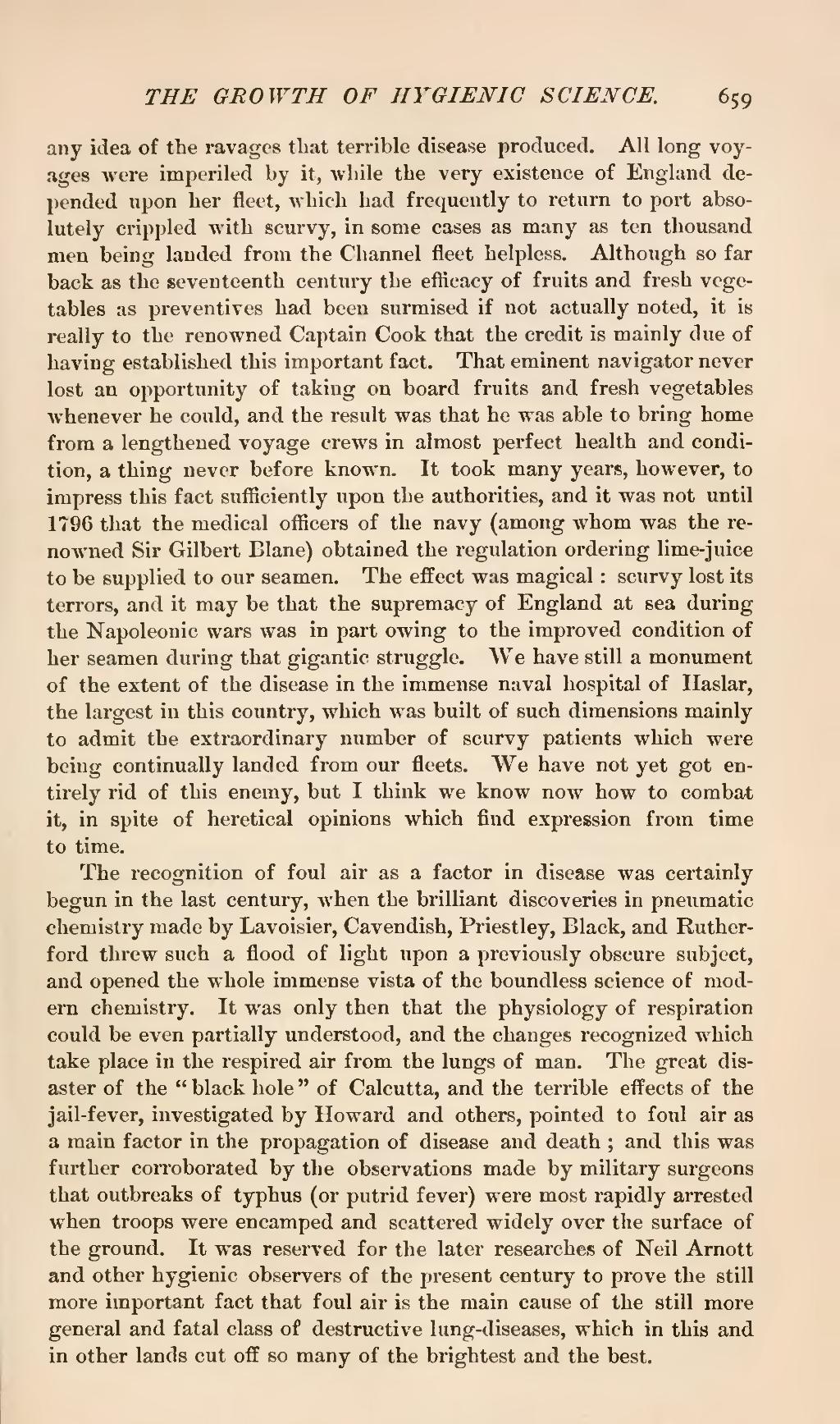any idea of the ravages that terrible disease produced. All long voyages were imperiled by it, while the very existence of England depended upon her fleet, which had frequently to return to port absolutely crippled with scurvy, in some cases as many as ten thousand men being landed from the Channel fleet helpless. Although so far back as the seventeenth century the efficacy of fruits and fresh vegetables as preventives had been surmised if not actually noted, it is really to the renowned Captain Cook that the credit is mainly due of having established this important fact. That eminent navigator never lost an opportunity of taking on board fruits and fresh vegetables whenever he could, and the result was that he was able to bring home from a lengthened voyage crews in almost perfect health and condition, a thing never before known. It took many years, however, to impress this fact sufficiently upon the authorities, and it was not until 1796 that the medical officers of the navy (among whom was the renowned Sir Gilbert Blane) obtained the regulation ordering lime-juice to be supplied to our seamen. The effect was magical: scurvy lost its terrors, and it may be that the supremacy of England at sea during the Napoleonic wars was in part owing to the improved condition of her seamen during that gigantic struggle. We have still a monument of the extent of the disease in the immense naval hospital of Haslar, the largest in this country, which was built of such dimensions mainly to admit the extraordinary number of scurvy patients which were being continually landed from our fleets. We have not yet got entirely rid of this enemy, but I think we know now how to combat it, in spite of heretical opinions which find expression from time to time.
The recognition of foul air as a factor in disease was certainly begun in the last century, when the brilliant discoveries in pneumatic chemistry made by Lavoisier, Cavendish, Priestley, Black, and Rutherford threw such a flood of light upon a previously obscure subject, and opened the whole immense vista of the boundless science of modern chemistry. It was only then that the physiology of respiration could be even partially understood, and the changes recognized which take place in the respired air from the lungs of man. The great disaster of the "black hole" of Calcutta, and the terrible effects of the jail-fever, investigated by Howard and others, pointed to foul air as a main factor in the propagation of disease and death; and this was further corroborated by the observations made by military surgeons that outbreaks of typhus (or putrid fever) were most rapidly arrested when troops were encamped and scattered widely over the surface of the ground. It was reserved for the later researches of Neil Arnott and other hygienic observers of the present century to prove the still more important fact that foul air is the main cause of the still more general and fatal class of destructive lung-diseases, which in this and in other lands cut off so many of the brightest and the best.
